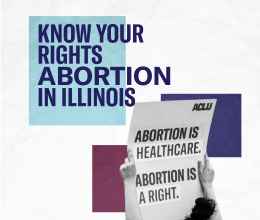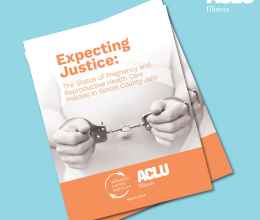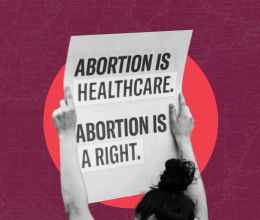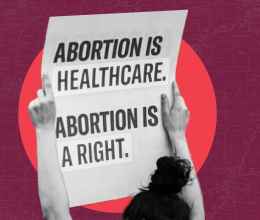From the Chicago Tribune's "Voice of the People" section on February 12, 2012.
Tribune columnist Steve Chapman's "Inoculating against religious freedom" (Commentary, Feb. 2) adopts a misguided definition of religious liberty with dangerous consequences. Recognizing the importance of birth control to women's lives and health, the Obama administration recently issued regulations that require new insurance plans offered by employers to cover contraceptives. The regulations are based on recommendations advanced by a non-partisan panel of medical experts.
The reason for these recommendations is clear: Virtually every woman of child-bearing age practices some sort of contraception at some point (including 98 percent of sexually active Catholics). Women use contraception to prevent unintended pregnancies, plan their families and protect their health, including treating serious medical conditions unrelated to pregnancy prevention. In fact, contraception is properly recognized by the medical experts as essential "preventative" care for women and, therefore, required as are all preventive health services under the new law for both genders.
Like Chapman, the U.S. Conference of Bishops decried the decision as an attack on their religious freedom. Let's be clear. No one is prohibiting the bishops — or anyone else — from preaching that contraception is sinful. Nor does the regulation require that the church provide contraceptive coverage for its employees. Any religious institution that primarily hires and serves those of its own faith and whose work is centered on advancing that faith is exempt from the requirement.
The rule does require that women who work at Catholic hospitals, religious universities and colleges and other religiously affiliated organization have their contraceptives covered by insurance. These facilities are largely secular in who they serve and employ. Institutions like these operate and remain open through the use of government funding, Medicare and Medicaid payments for patients at health care facilities, and government research and training grants, as well as government-provided or subsidized loans at educational institutes, for example. They receive many other forms of tax-supported services and also frequently represent a major employer in a geographical area. For this reason, many states already require coverage for contraceptives for these employees. These states recognize that the 800,000 people employed by Catholic hospitals across the nation are not working for the church.
Religious freedom gives each of us the right to make personal decisions, including whether and when to use birth control based on our own belief and according to what is best for our health and the well-being of our family. It does not give religious groups the right to impose their beliefs on others.
— Colleen K. Connell, executive director, American Civil Liberties Union of Illinois, Chicago
Call 1-855-435-7693
ICCIR hotline to report ICE activity in your community





